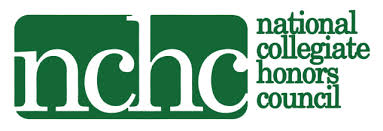Legacy of Balladry
Legacy - HNRS 1120
Instructor(s): Michael Thomas
Course Description
In this seminar we will listen to songs that tell stories. At first, we will focus on murder ballads, songs that address the deepest human conflicts and the most serious transgressions that emerge from those conflicts. Branching out into other types of ballads, we will look at these songs as artifacts of the culture(s) that produced them. Songs, like physical objects, can persist beyond the lifetime of the people that create and use them. As with solid objects, like pots or tools, close study of songs can reveal much about those people and their culture. We will examine these songs, how they entertain, engage, and inform. We will look at the dimensions of the stories embedded in the songs - character development, plot, voice, etc. all the elements of fiction and narrative non-fiction. We will research these songs and the stories they tell in terms of what they reveal about culture. Stories told in song are compressed, reduced to their barest fundamentals. Popular songs necessarily reflect the values and value conflicts of the people who sing and listen. We will address some very ancient, venerable works such as the Odyssey (which I would characterize as an epic, long-form murder ballad) along with folk ballads. We will also touch upon songs of conflict and mayhem in contemporary pop culture genres (pop, rock, hip hop, C&W, Americana, etc.).
Texts
Much of the content for this class will be in the form of songs. The instructor will provide songs in MP3 format along with lyric files in MS Word format for common assignments.
Books:
- Selections from The Odyssey by Homer - Translated by Stanley Lombardo
- The Rose and the Briar: Death, Love and Liberty in the American Ballad – G. Marcus, S. Wilentz
- Mad Love, Murder, and Mayhem – Favorite ballads – Joshua Hampton
- The Viking Book of Folk Ballads of the English-Speaking World - ed. Albert B. Friedman (this book is out of print but free downloads in *.PDF format are available online as are used copies.
- The instructor may provide readings with supplementary assignments on the seminar website. These will depend on the interests of the students.
Requirements
- Papers
- Six one-page reaction papers (6 x 5 = 30 points)
- A five-page analytic essay (15 points)
- Research proposal (5 points)
- A six-page research paper (20 points)
- An assessment of participation (20 points)
- Attendance at two outside lectures (10 points)



Social Media
For news, information, prizes and more fun stuff follow us on our social media!
Honors College Resources